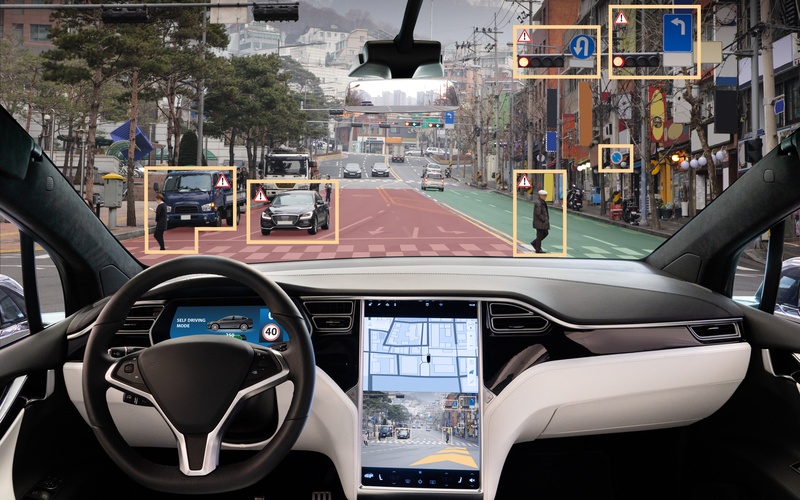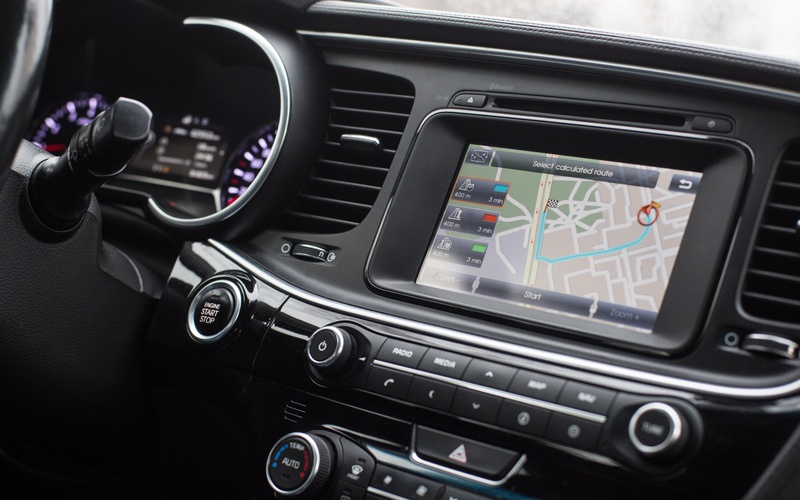How Electrical Connectors Power Autonomous Vehicles

Autonomous vehicles represent the cutting edge of automotive technology, revolutionizing transportation through AI and advanced electronic systems. At the heart of this innovation lies an indispensable component that often goes unnoticed but plays a critical role in enabling these vehicles to operate seamlessly: electrical connectors. This blog explores how electrical connectors power autonomous vehicles, ensuring the reliable flow of data and power that these vehicles need to function.
The Backbone of Vehicle Communication
Electrical connectors form the communications backbone of autonomous vehicles, bridging the intricate network of sensors, cameras, GPS modules, and control units. These components must transmit data efficiently to allow the vehicle to process its environment in real-time.
Imagine the sheer number of functions inside an autonomous car, from detecting nearby traffic to making split-second decisions about speed and stopping. Each of these functions requires perfectly synchronized data transmission. Electrical connectors make this possible. Without high-performing connectors linking different subsystems in real-time, vehicles cannot receive or send critical signals, rendering autonomy unachievable. Therefore, the efficiency and reliability of these connectors directly impact the vehicle’s performance.

Ensuring Reliable Power Delivery
Beyond data, the role of electrical connectors in power delivery is not to be understated. For autonomous vehicles to function efficiently, every onboard system—from LiDAR and radar to infotainment and navigation systems—requires stable and robust power. Electrical connectors enable power transfer without interruptions or voltage drops, regardless of the operating conditions of the vehicle.
Advanced connectors, such as an 8-pin electrical connector, are designed to handle high-current power supplies while maintaining compact designs. These connectors amplify efficiency while minimizing heat generation and power loss. Proper power delivery ensures that critical systems always perform optimally, whether the vehicle is cruising on a highway or navigating a congested urban setting.
Durability in Challenging Conditions
The environments faced by autonomous vehicles are not uniform. From extreme heat to freezing cold, from heavy rain to dusty roads, every condition tests the resilience of vehicle components. Electrical connectors are engineered to withstand these challenges, maintaining peak performance even in harsh conditions.
High-grade materials such as corrosion-resistant alloys and insulation with high thermal thresholds ensure that these connectors remain functional under stress. Expert design minimizes wear and tear due to vibrations, which vehicles continuously experience. This durability ensures uninterrupted vehicle operation, a vital requirement for any system guiding autonomous decision-making.
Seamless Integration With Advanced Driver-Assistance Systems (ADAS)
Advanced driver-assistance systems (ADAS) rely heavily on components that form a cohesive network within autonomous vehicles. Electrical connectors are the enablers of this complex ecosystem. By linking diverse ADAS subcomponents such as adaptive cruise control, lane-keeping systems, and parking assistance, connectors facilitate communication that supports safe navigation and decision-making.
For instance, ADAS sensors must communicate road conditions to the central control unit. High-quality connectors ensure that this constant feedback loop is free of data losses or delays. Consequently, they ensure the precision and responsiveness necessary to facilitate a seamless transition from human-driven to fully autonomous vehicles.
Compactness and Scalability for Modern Designs
As vehicles become increasingly compact, scalability in design is crucial for ensuring optimal efficiency. Electrical connectors now need to deliver high performance while occupying minimal onboard space. Modern connectors are optimized to be compact without sacrificing functionality, aligning perfectly with the space constraints of today’s autonomous vehicles.
Additionally, scalability ensures that evolving technology can be smoothly integrated into existing platforms. For example, varying types of connectors are now designed to support increasing levels of autonomy, from semi-autonomous features to fully self-driving systems. Manufacturers no longer view electrical connectors merely as assembly components but as vital innovations supporting the ongoing revolution of autonomous vehicles.
Redundancy and Fail-Safe Systems Support
One of the primary concerns in autonomous vehicle development is preventing system failures. Given that a momentary power or data transmission issue can lead to catastrophic failures, redundancy is a key focus. Electrical connectors play a pivotal role in creating these fail-safe systems.
Through redundant connector setups, vehicles ensure continuous operation even when one connection route faces issues. High-reliability connectors equipped with multiple contact points and advanced locking mechanisms effectively prevent failures, ensuring a reliable communication and power supply across all systems. These features are essential to inspire consumer trust in autonomous technology.
Precision Engineering and Customization
The demand for customization in autonomous vehicles grows as manufacturers innovate solutions for specific use cases. Electrical connectors are no exception to this trend. Precision engineering ensures that connectors meet the particular requirements of each subsystem within the vehicle.
Connector designs now cater to specialized needs such as high-speed data transfers, high-voltage power delivery, or increased environmental protection. Engineers collaborate with manufacturers to ensure seamless alignment between the connector and the vehicle’s architecture. This tailored approach is what ensures optimal performance in every vehicle application.
Strengthening Safety with Secure Connections
Safety is a non-negotiable aspect of autonomous vehicles, and electrical connectors have a significant impact in this regard. Secure connections mitigate risks such as signal interference, power loss, or system latency. Features like foolproof connector alignment, locking systems, and shielding from electromagnetic interference ensure robust signal integrity.
Well-designed electrical connectors reduce risks associated with loose connections or intermittent contacts. By maintaining a steady flow of data and energy, they enhance the operational safety of not just the vehicle but everyone on the road.

Balancing Complexity With User-Friendly Maintenance
Although autonomous vehicles are technologically complex, their components must allow for accessible maintenance. Engineers ensure that connectors are designed for quick installation and easy servicing, thereby improving overall uptime. User-friendly connection systems reduce assembly time during manufacturing and simplify on-site repairs when issues occur.
With automotive systems becoming denser and more compact, connectors equipped with intuitive locking and release mechanisms are highly valuable. This balance of complexity and ease of use reinforces connectors as indispensable tools in the modern autonomous vehicle ecosystem.
Why Electrical Connectors Are Vital for Autonomous Mobility
As innovation in autonomous vehicles accelerates, so does the need for specialized components that can meet the demands of next-generation vehicles. Electrical connectors are more than just accessories; they are the unseen force making autonomy functional.
By delivering data and power under demanding conditions, facilitating fail-safe operations, and integrating seamlessly across systems, connectors ensure that these vehicles perform with precision, efficiency, and safety. The way electrical connectors power autonomous vehicles is unparalleled, making them a vital investment for manufacturers seeking to stay ahead in the competitive automotive market.

You must login to post comments.